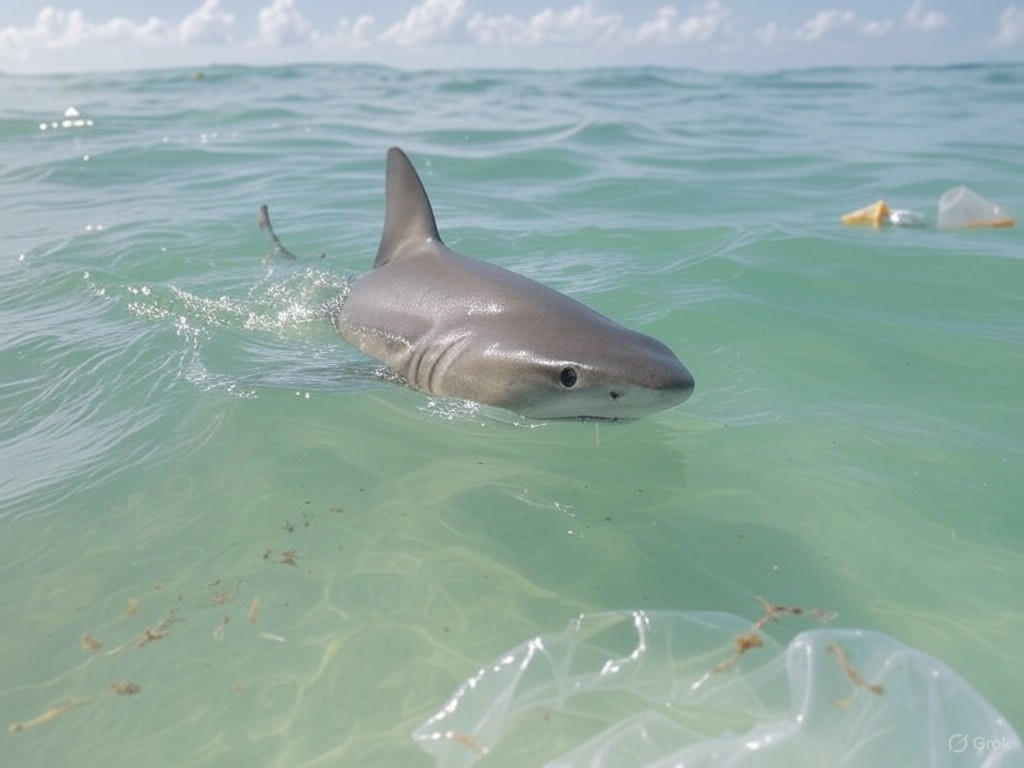Sharks on a High: Ocean Pollution’s Bizarre Impact on Marine Life
In a startling discovery off the coast of Brazil, scientists have stumbled upon a phenomenon that sounds like it belongs in a science fiction thriller: sharks swimming in waters tainted with cocaine. These Brazilian sharpnose sharks, a small but agile species native to the region, have been found to carry traces of the drug in their systems, raising alarming questions about the state of our oceans and the unintended consequences of human activity.
The issue first came to light when marine biologists conducting routine studies noticed unusual behavior among the sharks. These creatures, typically known for their swift movements and predatory precision, displayed erratic swimming patterns and heightened aggression. Upon closer examination, researchers detected significant levels of cocaine and its metabolites in the sharks’ tissues. This wasn’t just a one-off incident; multiple sharks tested positive, pointing to a widespread contamination of their coastal habitat. The source? Likely runoff from illegal drug trafficking activities, where packages of cocaine are dumped or lost at sea, dissolving into the water and permeating the marine food chain.
This bizarre situation underscores a much larger problem: ocean pollution. While plastic waste and oil spills often dominate headlines, chemical pollutants like narcotics are silently wreaking havoc on marine ecosystems. Sharks, as apex predators, are particularly vulnerable to bioaccumulation, where toxins build up in their bodies over time through the prey they consume. The presence of cocaine in their system could disrupt their nervous systems, impair their hunting abilities, and even affect their reproduction. Beyond the sharks, this pollution threatens the entire aquatic food web, from tiny plankton to larger fish, potentially impacting human communities that rely on seafood as a staple.
What makes this discovery even more troubling is the broader implication for global waters. Brazil’s coastline is just one of many regions affected by drug trafficking routes, with similar incidents possibly occurring undetected elsewhere. Scientists warn that without stricter regulations on waste disposal and stronger efforts to curb illegal drug transport, such surreal scenarios could become more common. The ocean, often seen as a vast, resilient frontier, is proving to be far more fragile than we imagined, absorbing the fallout of humanity’s vices in ways we never anticipated.
As research continues, the hope is that this odd case of ‘cocaine sharks’ will serve as a wake-up call. Governments, environmentalists, and communities must unite to tackle the root causes of ocean pollution, whether it’s cracking down on trafficking or improving waste management systems. For now, these Brazilian sharpnose sharks are a living testament to the strange and troubling ways our actions ripple through the natural world. Their story is a reminder that the health of our planet is intertwined with our own—and ignoring these warning signs could lead to consequences far stranger than fiction.


